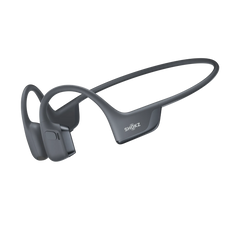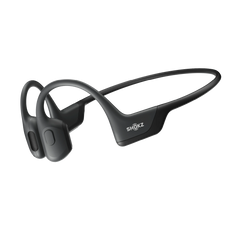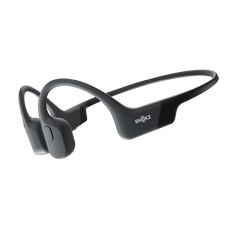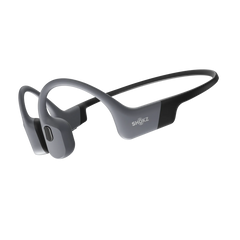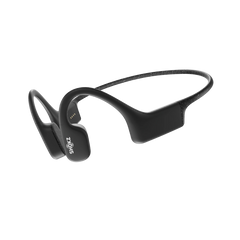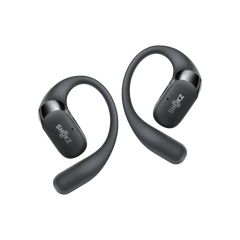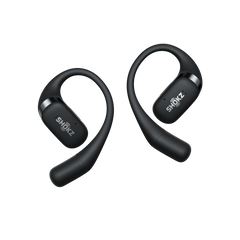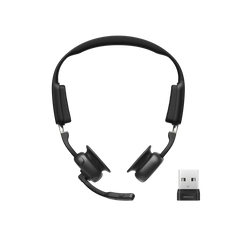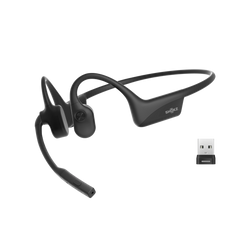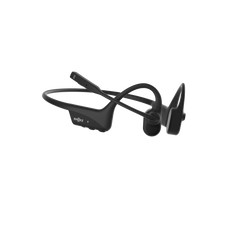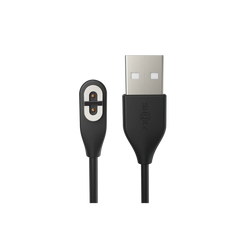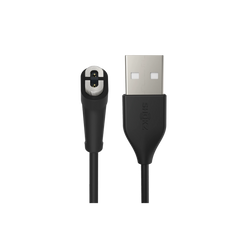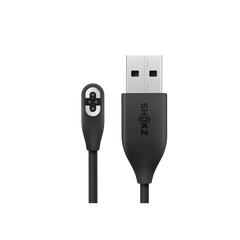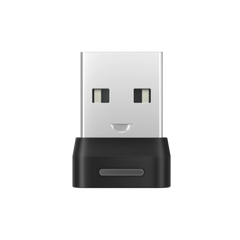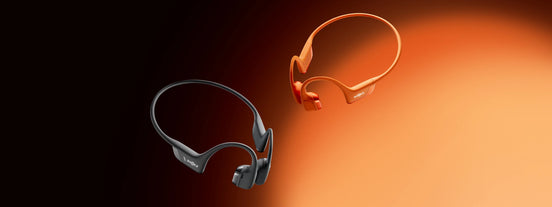We've all experienced an itch in the ear that just won't quit. Itchy ears can be more than just irritating, whether it's a gentle tickle or an uncontrollable urge to scratch, it can make you uncomfortable or even irritable.
If you have ever wondered “Why are my ears itchy, and how do I get quick relief?”, then you are in luck since Itchy ears are not typically serious and can be treated at home in most cases. However, If the itching persists, it can be a sign of an issue, like allergies, skin infections, or ear infections.
Today, we'll discover why your ears itch, how to avoid discomfort, and why your headphones are making it worse. Plus, we'll introduce open-ear headphones, the revolutionary new solution for people who want to listen without irritation.
The Hidden Reasons Behind Your Itchy Ears
Common Causes of Itchy Ears
Itchy ears can occur for a few different reasons, while some might be harmless others might require you to visit the doctor. Here are some common causes.
-
Dry Skin and Lack of Earwax — If your ear does not produce enough earwax, the skin inside your ear dries out, flakes, and becomes irritating leading to itchy ears — this is most common during the colder months when the air is dry.
-
Allergies and Irritants — Individuals who experience seasonal allergies, might notice that their ears itch more than normal. Pollen, dust, pet dander, and even hair products or perfumes can irritate the inside of your ear canal.
-
Infections and Fungal Growth — Bacterial and fungal infections can also lead to serious itching, especially if the symptoms include pain, discharge, or hearing loss.
-
Skin Conditions like Eczema and Psoriasis — Chronic skin conditions such as eczema or psoriasis can even extend to the delicate skin inside your ears, leading to you getting dry, scaly, inflamed skin that leads to itchy ears.
When Itchy Ears Signal a Bigger Problem
-
Signs of Infections — if you experience itchy ears alongside pain, swelling or discharge it could mean that you have an ear infection like a swimmer’s ear (otitis externa) or a middle ear infection.
-
Menopause and Hormonal Changes — Hormonal fluctuations like menopause can also cause dryness and itchiness in your ear.
Can Itchy Ears Affect Hearing?
Consistent itching in the ear can cause you to build up ear wax, which can block your ear canal and affect your hearing. Moreover, excessive scratching can also lead to infections and can result in temporary or permanent hearing loss.
My Ears Itch Deep Inside: What Can I Do?
Home Remedies for Quick Relief
If you are escaping itchy ears back from dryness or mild irritation then there are several home remedies that can provide you relief.
-
Moisturizing Drops and Natural Oils — A few drops of olive or coconut oil can prevent dry, irritating skin inside your ear canal. Use slightly warm oil and apply a small amount using a dropper.
-
Warm Compresses — Using a warm, damp cloth on your ear can help you relieve your itching by opening the ear canal.
-
Proper Ear Hygiene — keeping proper ear hygiene is crucial in preventing itchiness. Gently clean your outer ear with a soft cloth and avoid using cotton swabs since they can push further into the ear canal.
Medical Treatments for Persistent Itching
If the itching remains, then you might have to move on to medical treatment.
Over-the-counter and Prescription Solutions
If you are expecting itchiness in your ear because of allergies or an infarction then over-the-counter antihistamines or ear drops can help, whereas for more serious inquiries it's best to visit a doctor.
When to See a Doctor
If your symptoms won’t improve with home remedies, or if you notice discharge, swelling, or pain, it’s time to visit a healthcare provider. They will determine the cause of the irritation and suggest the most effective treatment.
How Your Listening Habits Affect Ear Health
Why Regular Headphones Can Make It Worse
When you're listening to music or taking calls, you may unknowingly make ear pressure and discomfort worse with regular headphones.
Moisture Buildup and Poor Ventilation
Standard in-ear or over-ear headphones cause the entrapment of heat and moisture in the ear. Trapped heat and moisture provide a perfect environment for fungi and bacteria to grow, which makes irritation, discomfort, and infection more likely.
Pressure and Irritation from Earbuds
Earbuds that go deep into the ear canal have a tendency to rub against sensitive skin and also scratch and itch. Prolonged use worsens the situation, particularly if the headphones are not ergonomically designed for comfort.
Allergy Risks from Earphone Materials
Some of the materials used in conventional headphones, including plastics and rubber, are also possible allergens and can lead to itchiness and irritation.
Choosing the Right Headphones for Sensitive Ears
If you have sensitive ears, It is important to select the ideal headphones for your use.
Open-Ear Designs Improve Airflow
Open-ear headphones such as the Shokz OpenFit sit outside the ear, avoiding pressure and permitting airflow. This minimizes moisture and irritation, which makes them perfect for itchy ears.
No Direct Contact with the Ear Canal
Because open-ear headphones never insert into the ear canal, they offer pressure-free, irritation-free listening, even for hours at a time.
Hygienic and Skin-Friendly Materials
The majority of open-ear headphones are constructed with skin-friendly materials that minimize allergic reactions. For example, the Shokz OpenFit Air and OpenFit provide comfort and good sound quality while also being delivered to your ears.
Healthy Ear Care Habits
Best Practices for Ear Hygiene
Safe Cleaning Techniques
Wipe the outer part of your ear using a clean damp cloth. Never insert cotton swabs into your ear canal because it may force the wax deeper inside and cause irritation.
Keeping Ears Dry and Irritation-Free
Dry your ears carefully with a towel after a shower or swimming. Water in the ear can cause fungal infection and irritation.
Avoiding Common Triggers
Managing Allergies
When allergies cause itchiness, try taking allergy drugs or staying away from allergens that cause the symptoms.
Choosing Skin-Friendly Products
Stay away from rough ear products that can trigger allergic reactions. Use gentle, hypoallergenic ear care products and open-ear headphones to avoid further irritation.

OpenFit and OpenFit Air: The Best Open-Ear Headphones by Shokz
Shokz OpenFit Air
With Shocks DirectPitch™ technology — Shockz OpenFit Air delivers clear, immersive sound without ear pressure. Designed for comfort and durability, they're lightweight and perfect for workouts, commutes, or all-day wear while staying connected to the world around you.
Shokz OpenFit
Combining comfort, style, and high-quality audio, Shokz OpenFit offers pressure-free listening with an ergonomic, lightweight fit. Ideal for everyday use, they offer quality sound while keeping you connected to the world around you, both inside and out.
Upgrade to Open Ear Headphones for Better Comfort, Ear Health, and Pain-Free Listening
Tired of itchy ears? Perhaps it's time to switch, open-ear headphones provide a comfortable, irritation-free listening experience by eliminating ear canal pressure and moisture buildup. Are you ready to experience comfortable listening? Try the Shokz OpenFit Air or OpenFit today and experience the difference in comfort, airflow, and ear health!
FAQs: Relieving Ear Pressure and Finding Comfort
Q1: Can wearing regular headphones cause itchy ears?
Yes — standard in-ear or over-ear headphones can make you feel itchy ears — as they can confine most of the moisture and warm up the inside of your ear.
Q2: How can I relieve pressure in my ear from headphones?
To alleviate pressure from the ear, use open-ear headphones which do not completely seal off the ear canal. Regular breakups and ingestion of plenty of water can minimize irritation as well.
Q3: Are open-ear headphones good for people with itchy ears?
Yes, these headsets are well-suited to people who develop itchiness from ears since they never push on top of the ear canal, leaving more flow-through to bring minimal irritation as well as a minimization in comfort.
Q4: What are the benefits of switching to open-ear headphones?
Converting to open-ear headphones such as the Shokz OpenFit provides improved comfort by removing direct pressure on the ear canal. They provide improved ventilation, minimize ear discomfort, and promote overall ear health.
